Using SMS Marketing to Communicate With Customers

Key Takeaways
Text messaging has emerged as one of the most direct and effective ways for businesses to engage customers. Its near-instant delivery and high open rates offer significant opportunities, but effective SMS marketing and communication requires more than just sending a message. Companies must approach text messaging with strategic intent, adhering to best practices that foster trust, enhance experiences, and achieve concrete business goals.
Understanding the Role of SMS Marketing in Customer Engagement
Text messaging, or SMS, holds a unique position between personal and professional communication. Customers view text messages as intimate and expect content that is relevant and concise. While emails may go unread for hours or days, text messages typically receive rapid attention. However, this immediacy also demands sensitivity—overuse or irrelevant content can quickly erode trust.
Gaining Permission: Compliance and Consent
Before initiating any SMS marketing or text communication with customers, it is important to secure their explicit permission. This often means employing clear opt-in processes, where customers knowingly agree to receive messages. Regulatory frameworks such as the Telephone Consumer Protection Act (TCPA) in the United States impose strict rules on commercial texting, making unpermitted messages not only unwelcome, but also legally risky. In addition to initial consent, businesses must provide customers with easy mechanisms to opt out at any time, reinforcing respect and control.

Crafting Clear and Relevant SMS Marketing Messages
Conciseness is fundamental to SMS marketing communications, as messages are limited by character counts and customers’ attention spans. Every text must convey its value immediately, utilizing plain language and a direct call-to-action when appropriate. Overly technical jargon, ambiguity, or excessive length undermines engagement and can make messages feel impersonal. It’s also important to ensure the content directly relates to the customer’s interests as behavioral data—irrelevant messages are a leading contributor to opt-outs.
Timing and Frequency of SMS Marketing: Respecting Customer Preferences
Text messaging is highly disruptive compared to other forms of communication. Timing and frequency are important and deserve careful consideration. Messages sent outside reasonable hours—such as very early in the morning or late at night—can come across as intrusive. Similarly, bombarding customers with frequent texts can foster irritation and prompt them to unsubscribe. Successful SMS marketing strategies rely on well-timed, purposeful communication that aligns with customer behavior or expressed preferences.

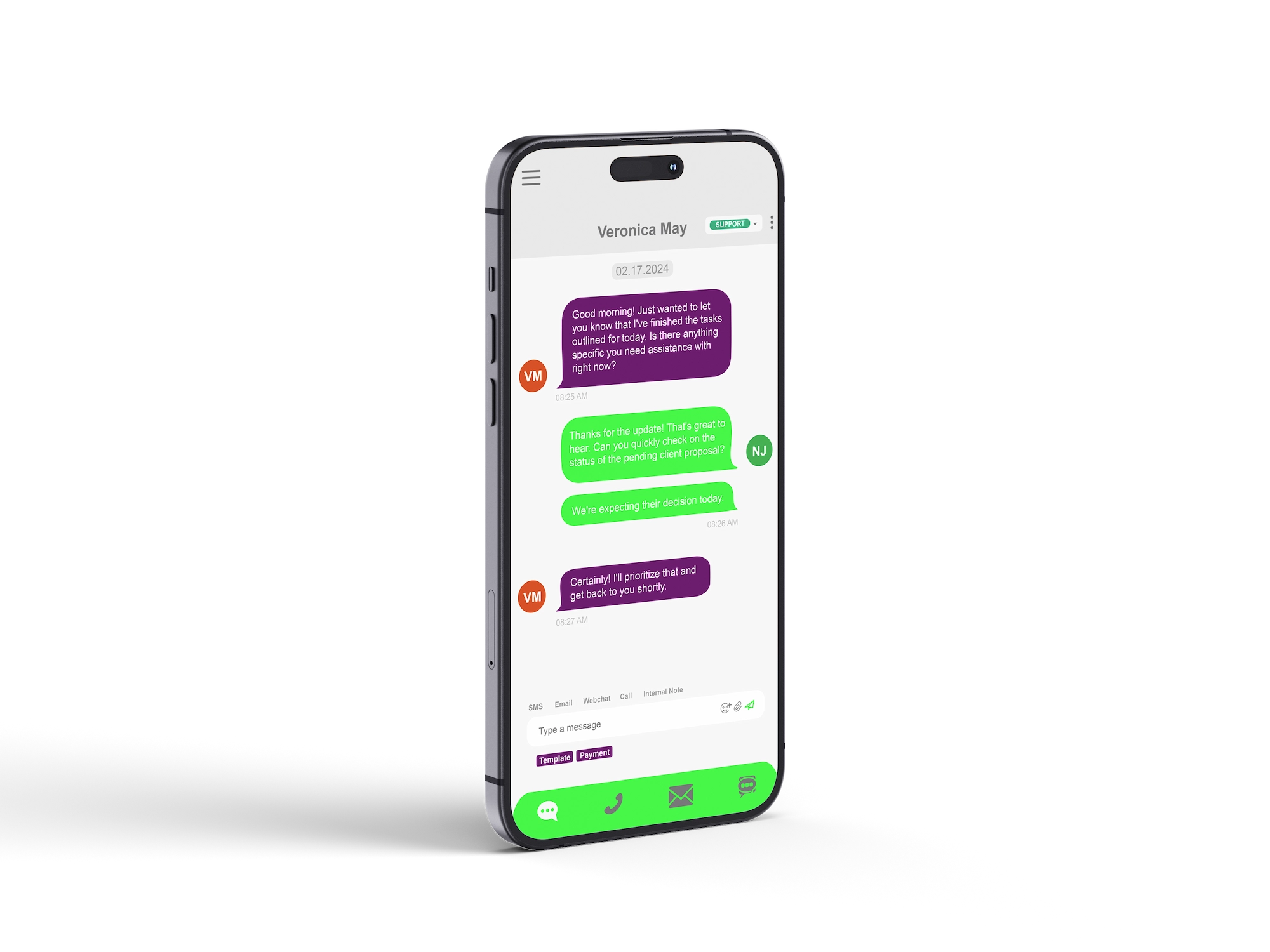
SMS Marketing that Ensures Personalization and Human Touch
Personalization distinguishes your SMS marketing from generic blasts customers often ignore. Addressing customers by their first names and, when possible, tailoring content to their purchase history or preferences adds value and meaning. However, authenticity is key; over-automated SMS marketing that fails to account for context can feel robotic and diminish trust. Aim for a balance by leveraging data and automation to serve each customer’s needs without losing the human element.
Providing Value in Every Message for SMS Marketing
Customers are more likely to welcome text messages that offer tangible benefits. Whether it’s a limited-time discount, personalized recommendations, or proactive service updates, each SMS marketing message should give the recipient a reason to engage. Avoid sending SMS marketing campaigns that lack clear value, as these can diminish the overall effectiveness of your text messaging efforts and risk losing hard-won permissions.
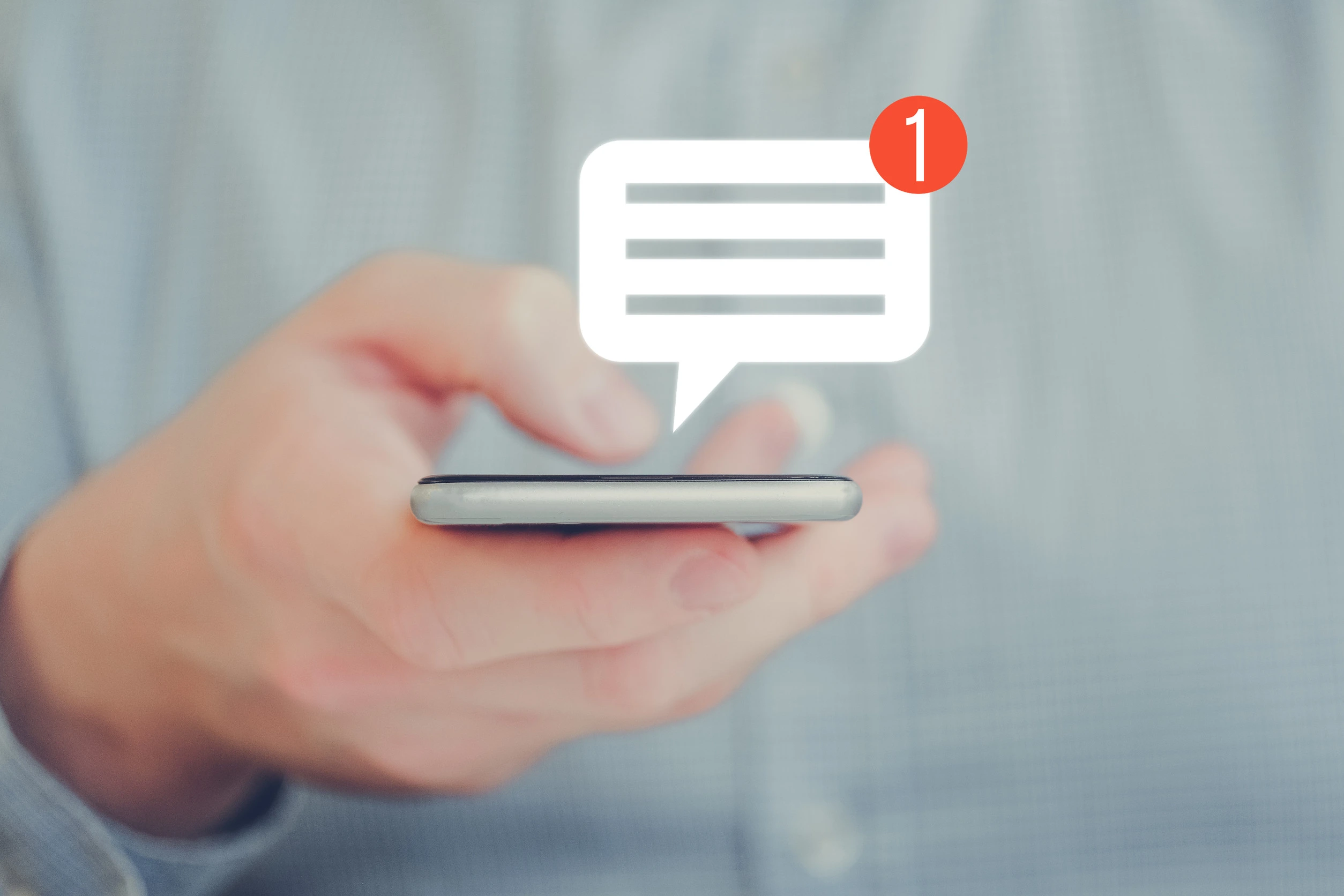
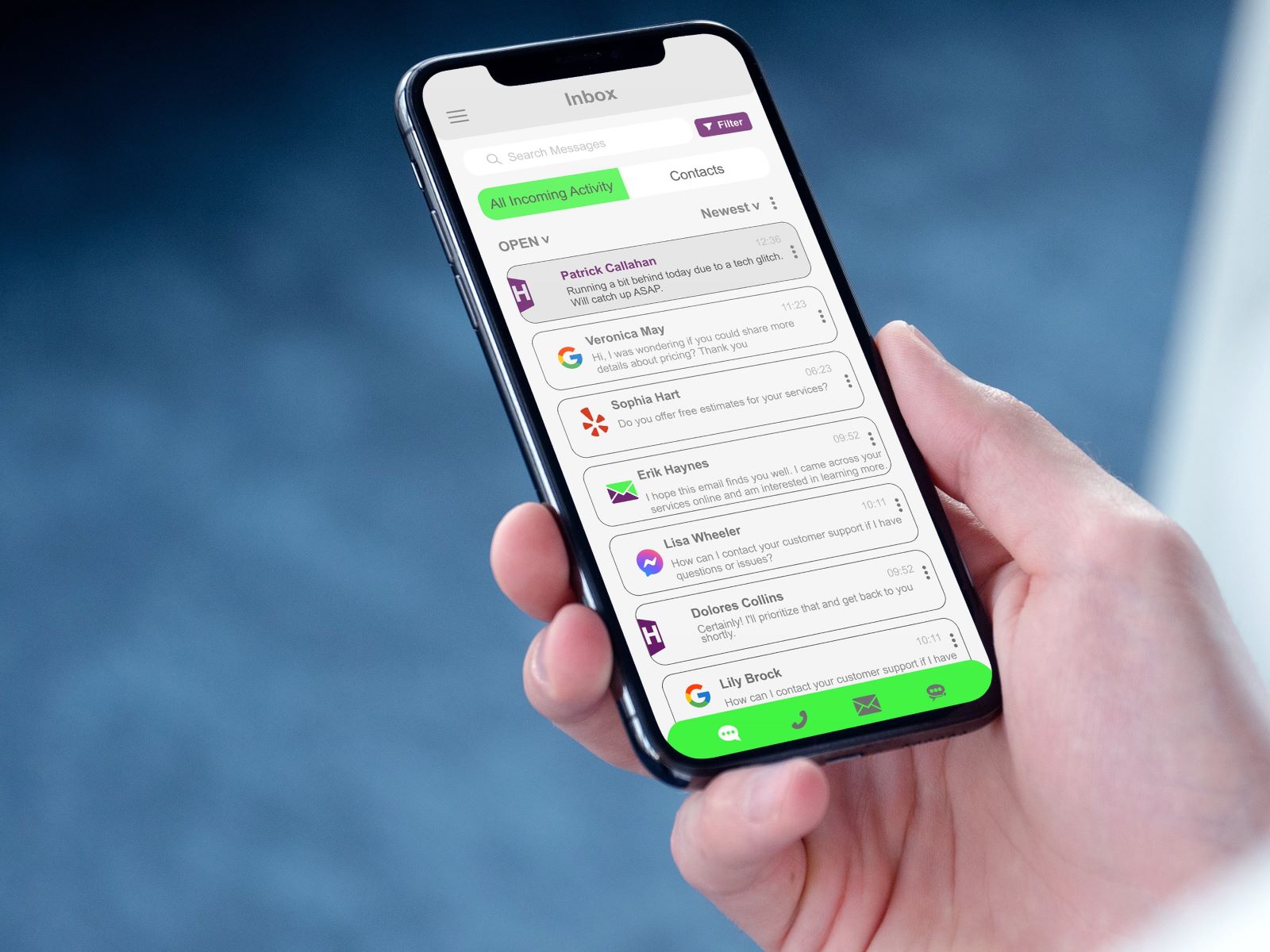
Managing Two-Way Communication and Responsiveness with SMS Marketing
SMS is no longer just a one-way notification tool; it has evolved into a powerful two-way communication channel for real-time engagement. This modern approach allows businesses to bridge the gap with their customers, turning simple alerts into genuine conversations. By allowing customers to respond directly to messages, you create a more convenient and immediate experience that significantly enhances overall customer experience.
The key to this strategy is finding the right balance between automation and human interaction. Automated responses can serve as a highly efficient digital front desk, immediately acknowledging a customer’s message, answering frequently asked questions, or providing basic information after hours. However, for complex inquiries or unusual requests, it’s important that a real human follows up. This seamless handoff from an automated system to a person demonstrates that you’re prepared to provide attentive, personalized support when it matters most.
Ultimately, your brand perception is shaped by your responsiveness. Prompt and respectful replies, whether from an automation or a human, show your customers they are valued and heard. This level of attentiveness builds trust and fosters brand loyalty, transforming a simple transaction into a reliable relationship.
Securing Customer Data and Privacy
With direct access to customers’ personal devices, privacy and data security are paramount. It is vital to protect customer contact information and message content from unauthorized access, aligning with data protection standards and industry best practices. Clear privacy policies, along with careful selection of compliant SMS platforms, reinforce customer trust and minimize risk. HubuSpark follows all SMS best practices and policies to ensure that your business is compliant.
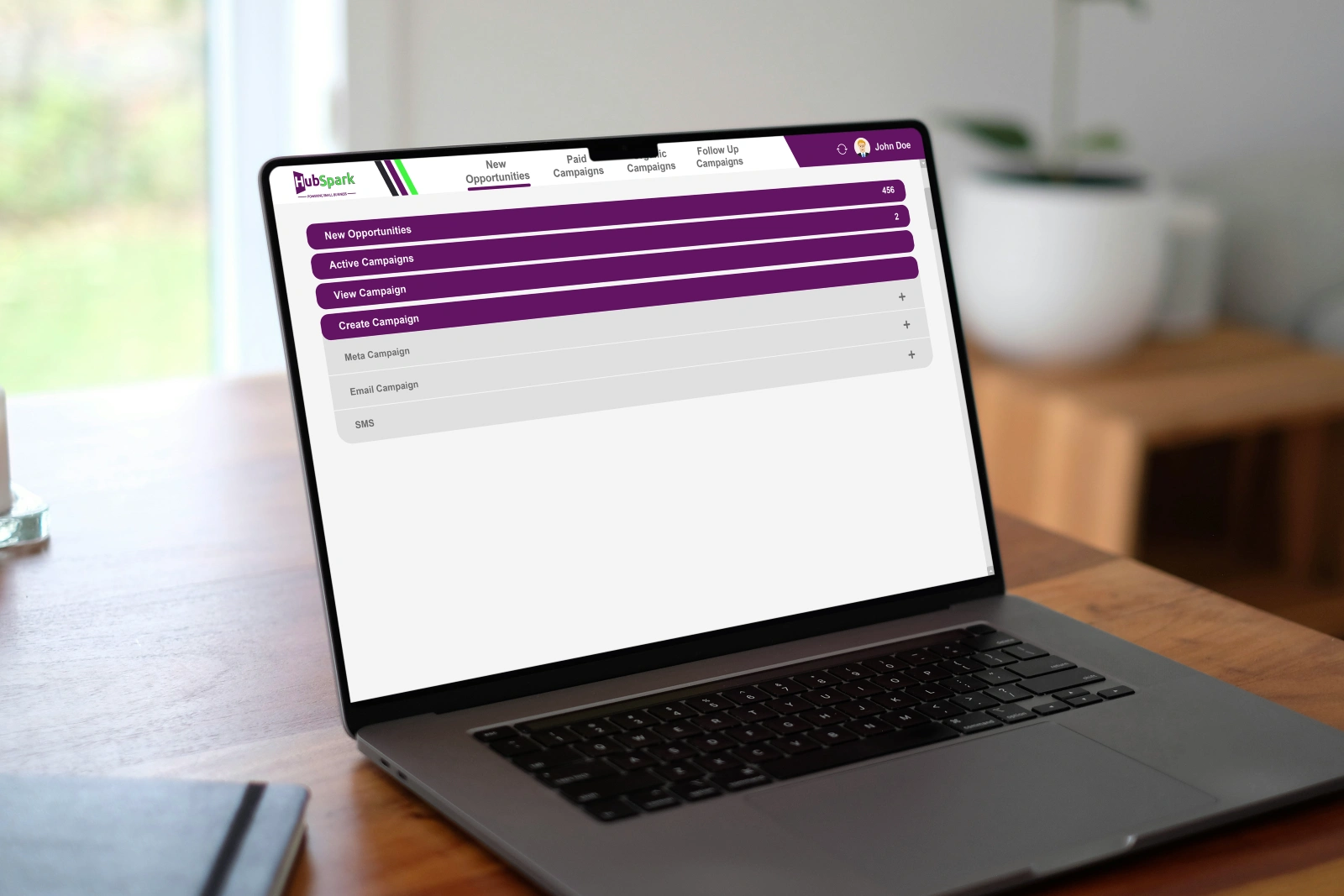
Key Types of Customer Communications Suitable for SMS
Several customer communication scenarios are especially well-suited for SMS. Below are some key types where SMS delivers optimal value and engagement:
- Transactional Alerts: These messages confirm actions such as purchases, shipping updates, or appointment reminders. Customers expect immediate updates for time-sensitive information, and SMS excels at meeting this need.
- Promotional Offers: Text messaging can be an effective way to share exclusive discounts, event notifications, or time-sensitive deals. Since messages reach customers instantly, SMS is highly effective for promotions that require rapid awareness.
- Customer Support: SMS can facilitate quick problem-solving by providing support ticket updates, feedback requests, or links to additional resources. Responsive two-way SMS support creates a convenient touchpoint for busy customers.
Monitoring, Testing, and Improving SMS Campaigns
To continually enhance your SMS communication, consistent monitoring and data-driven improvement are essential. By tracking key performance indicators such as open rates, click-through rates, opt-out rates, and customer feedback, businesses can identify which campaigns resonate most and which areas need adjustment. Regular A/B testing—experimenting with message timing, content, or tone—helps refine overall strategies for maximum impact.

Integrating SMS with Other Communication Channels
For best results, text messaging should not exist in isolation. Integrating SMS with other touchpoints—such as email, app notifications, or customer service channels—ensures consistent brand messaging and avoids redundancy. Cross-channel coordination also allows you to capitalize on each platform’s strengths, delivering a seamless experience as customers transition between touchpoints.

Partner with HubSpark for All Your SMS Marketing
To truly connect with your audience, HubSpark knows that text messaging is a powerful direct communication tool when used with care, respect, and purpose. By following best practices—such as obtaining clear consent, crafting relevant and personalized messages, respecting timing and frequency, and safeguarding privacy—businesses foster trust and meaningful engagement. When integrated thoughtfully into a broader communication strategy, SMS marketing becomes a valuable asset that enhances both customer satisfaction and business outcomes. This is the foundation of building lasting relationships with our customers at HubSpark. If you are ready to have your business enter the world of SMS marketing, contact HubSpark today to get started!
Frequently Asked Questions
You must comply with relevant laws such as the Telephone Consumer Protection Act (TCPA) in the U.S., which requires explicit opt-in consent before sending commercial text messages and mandates easy ways to opt out. Different regions may have additional regulations, so always stay informed about local requirements to avoid fines or reputational damage.
The ideal texting frequency varies by industry and customer preference, but most experts recommend limiting promotional texts to a few times per month and transactional or appointment reminders only as needed. Always track opt-out trends and customer feedback to adjust frequency and maintain positive engagement.
SMS is best used for urgent or time-sensitive information, such as order confirmations, appointment reminders, limited-time promotions, and customer support updates. Avoid using SMS for lengthy, complex, or non-urgent content, which can overwhelm or annoy customers.
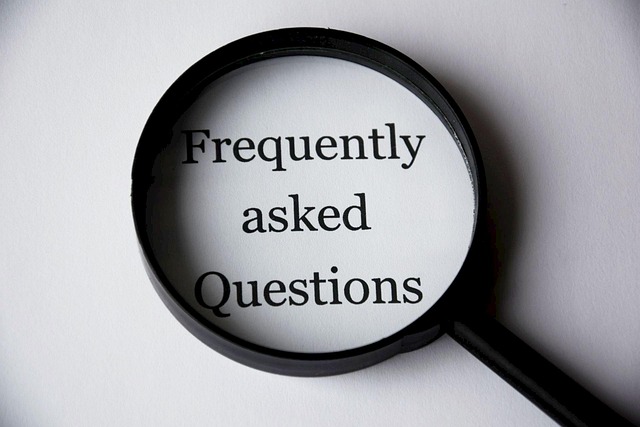

Text messaging has emerged as one of the most direct and effective ways for businesses to engage customers. Its near-instant delivery and high open rates offer significant opportunities, but effective SMS marketing and communication requires more than just sending a message. Companies must approach text messaging with strategic intent, adhering to best practices that foster trust, enhance experiences, and achieve concrete business goals.
Understanding the Role of SMS Marketing in Customer Engagement
Text messaging, or SMS, holds a unique position between personal and professional communication. Customers view text messages as intimate and expect content that is relevant and concise. While emails may go unread for hours or days, text messages typically receive rapid attention. However, this immediacy also demands sensitivity—overuse or irrelevant content can quickly erode trust.
Gaining Permission: Compliance and Consent
Before initiating any SMS marketing or text communication with customers, it is important to secure their explicit permission. This often means employing clear opt-in processes, where customers knowingly agree to receive messages. Regulatory frameworks such as the Telephone Consumer Protection Act (TCPA) in the United States impose strict rules on commercial texting, making unpermitted messages not only unwelcome, but also legally risky. In addition to initial consent, businesses must provide customers with easy mechanisms to opt out at any time, reinforcing respect and control.
Crafting Clear and Relevant SMS Marketing Messages

Conciseness is fundamental to SMS marketing communications, as messages are limited by character counts and customers’ attention spans. Every text must convey its value immediately, utilizing plain language and a direct call-to-action when appropriate. Overly technical jargon, ambiguity, or excessive length undermines engagement and can make messages feel impersonal. It’s also important to ensure the content directly relates to the customer’s interests as behavioral data—irrelevant messages are a leading contributor to opt-outs.
Timing and Frequency of SMS Marketing: Respecting Customer Preferences

Text messaging is highly disruptive compared to other forms of communication. Timing and frequency are important and deserve careful consideration. Messages sent outside reasonable hours—such as very early in the morning or late at night—can come across as intrusive. Similarly, bombarding customers with frequent texts can foster irritation and prompt them to unsubscribe. Successful SMS marketing strategies rely on well-timed, purposeful communication that aligns with customer behavior or expressed preferences.
SMS Marketing that Ensures Personalization and Human Touch

Personalization distinguishes your SMS marketing from generic blasts customers often ignore. Addressing customers by their first names and, when possible, tailoring content to their purchase history or preferences adds value and meaning. However, authenticity is key; over-automated SMS marketing that fails to account for context can feel robotic and diminish trust. Aim for a balance by leveraging data and automation to serve each customer’s needs without losing the human element.
Providing Value in Every Message for SMS Marketing

Customers are more likely to welcome text messages that offer tangible benefits. Whether it’s a limited-time discount, personalized recommendations, or proactive service updates, each SMS marketing message should give the recipient a reason to engage. Avoid sending SMS marketing campaigns that lack clear value, as these can diminish the overall effectiveness of your text messaging efforts and risk losing hard-won permissions.
Managing Two-Way Communication and Responsiveness with SMS Marketing

SMS is no longer just a one-way notification tool; it has evolved into a powerful two-way communication channel for real-time engagement. This modern approach allows businesses to bridge the gap with their customers, turning simple alerts into genuine conversations. By allowing customers to respond directly to messages, you create a more convenient and immediate experience that significantly enhances overall customer experience.
The key to this strategy is finding the right balance between automation and human interaction. Automated responses can serve as a highly efficient digital front desk, immediately acknowledging a customer’s message, answering frequently asked questions, or providing basic information after hours. However, for complex inquiries or unusual requests, it’s important that a real human follows up. This seamless handoff from an automated system to a person demonstrates that you’re prepared to provide attentive, personalized support when it matters most.
Ultimately, your brand perception is shaped by your responsiveness. Prompt and respectful replies, whether from an automation or a human, show your customers they are valued and heard. This level of attentiveness builds trust and fosters brand loyalty, transforming a simple transaction into a reliable relationship.
Securing Customer Data and Privacy
With direct access to customers’ personal devices, privacy and data security are paramount. It is vital to protect customer contact information and message content from unauthorized access, aligning with data protection standards and industry best practices. Clear privacy policies, along with careful selection of compliant SMS platforms, reinforce customer trust and minimize risk. HubuSpark follows all SMS best practices and policies to ensure that your business is compliant.
Key Types of Customer Communications Suitable for SMS

Several customer communication scenarios are especially well-suited for SMS. Below are some key types where SMS delivers optimal value and engagement:
- Transactional Alerts: These messages confirm actions such as purchases, shipping updates, or appointment reminders. Customers expect immediate updates for time-sensitive information, and SMS excels at meeting this need.
- Promotional Offers: Text messaging can be an effective way to share exclusive discounts, event notifications, or time-sensitive deals. Since messages reach customers instantly, SMS is highly effective for promotions that require rapid awareness.
- Customer Support: SMS can facilitate quick problem-solving by providing support ticket updates, feedback requests, or links to additional resources. Responsive two-way SMS support creates a convenient touchpoint for busy customers.
Monitoring, Testing, and Improving SMS Campaigns

To continually enhance your SMS communication, consistent monitoring and data-driven improvement are essential. By tracking key performance indicators such as open rates, click-through rates, opt-out rates, and customer feedback, businesses can identify which campaigns resonate most and which areas need adjustment. Regular A/B testing—experimenting with message timing, content, or tone—helps refine overall strategies for maximum impact.
Integrating SMS with Other Communication Channels
For best results, text messaging should not exist in isolation. Integrating SMS with other touchpoints—such as email, app notifications, or customer service channels—ensures consistent brand messaging and avoids redundancy. Cross-channel coordination also allows you to capitalize on each platform’s strengths, delivering a seamless experience as customers transition between touchpoints.
Partner with HubSpark for All Your SMS Marketing

To truly connect with your audience, HubSpark knows that text messaging is a powerful direct communication tool when used with care, respect, and purpose. By following best practices—such as obtaining clear consent, crafting relevant and personalized messages, respecting timing and frequency, and safeguarding privacy—businesses foster trust and meaningful engagement. When integrated thoughtfully into a broader communication strategy, SMS marketing becomes a valuable asset that enhances both customer satisfaction and business outcomes. This is the foundation of building lasting relationships with our customers at HubSpark. If you are ready to have your business enter the world of SMS marketing, contact HubSpark today to get started!
FAQ

1. What legal regulations must I follow when texting customers?
You must comply with relevant laws such as the Telephone Consumer Protection Act (TCPA) in the U.S., which requires explicit opt-in consent before sending commercial text messages and mandates easy ways to opt out. Different regions may have additional regulations, so always stay informed about local requirements to avoid fines or reputational damage.
2. How often should I text my customers without annoying them?
The ideal texting frequency varies by industry and customer preference, but most experts recommend limiting promotional texts to a few times per month and transactional or appointment reminders only as needed. Always track opt-out trends and customer feedback to adjust frequency and maintain positive engagement.
3. What kind of messages are best suited for SMS?
SMS is best used for urgent or time-sensitive information, such as order confirmations, appointment reminders, limited-time promotions, and customer support updates. Avoid using SMS for lengthy, complex, or non-urgent content, which can overwhelm or annoy customers.
Request a Free Demo
(no credit card required)

 Demo
Demo